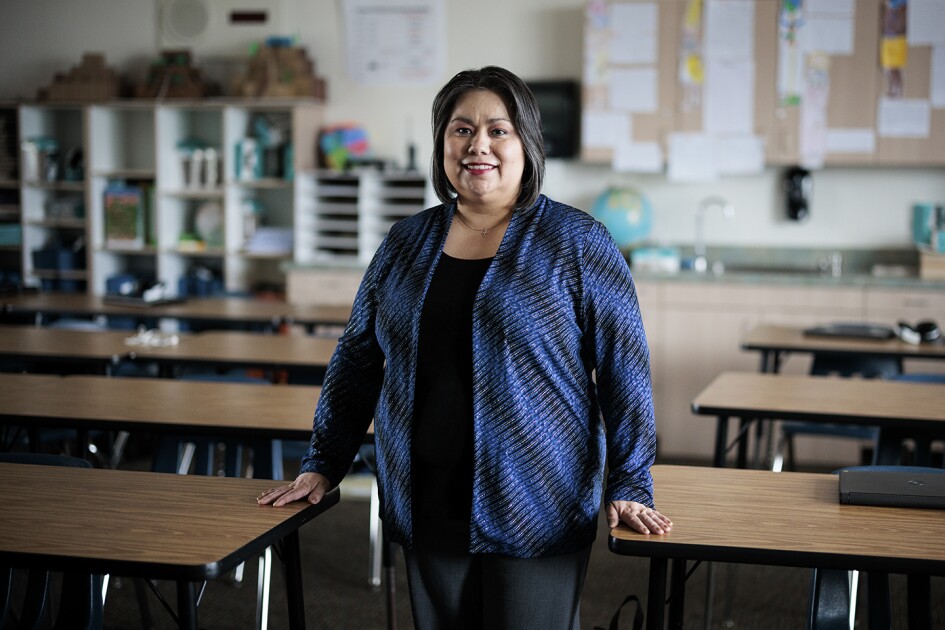Last week, Teaching Ahead here featured a discussion focused on “Teaching’s Revolving Door.” Here are some thoughts, based on my experience working to retain science teachers in a high poverty district.
I think it was the Greek philosopher Heraclitus who said “nothing is permanent but change.” He seems to have been secretly put in charge of school reform in the US for the past decade. But as research has emerged documenting the negative effect of teacher turnover, we are now beginning to see turnover not as a chance to lose dead wood, but as a real problem to be addressed.
In Oakland, turnover has been a crippling factor for many years. For reasons I described here several years ago, the District has used teachers recruited by organizations like Teach For America to fill vacant classrooms. For my last four years in Oakland (2007-2011) I led a project called TeamScience which had the goal of supporting and retaining new science teachers for the District. The project continues, under the leadership of Phil Cotty. Here are some of the lessons we learned, both about how to approach mentoring and support, and how to address retention in more systemic ways.
1. In a time when the emphasis is on test preparation, mentoring is even more important. Experienced teachers hold a reservoir of wisdom about what matters for our students, and how to challenge them to develop deeper understanding.
2. Collegiality is critically important. We built a community among the experienced teachers serving as mentors, and then extended it to include the novices. Teachers stay because they feel they belong. They leave when they feel isolated and overwhelmed.
3. At the same time we attend to supporting beginning teachers, we also want to support and reward the experienced teachers, giving them opportunities to grow and provide leadership. If we can retain them, or extend their careers by a few years, that is a huge accomplishment.
4. Community needs to be built over time through shared experiences. We held annual weekend retreats, which allowed us to learn together, and also share meals we cooked for one another. The social time allowed us to create relationships that sustained us, and helped us stay cohesive as a community.
5. Mentoring is a real skill. We worked in partnership with the New Teacher Center, and used many of the tools associated with the Beginning Teacher Support and Assessment (BTSA) program. These tools are good, but work much better with some guided practice. We had monthly Mentor Forums where we would practice using tools, and discuss the challenges we faced in our work with the novice teachers.
6. Teachers feel most supported when their mentors are at the same site. We had mentors meeting weekly with mentees, but it is of great value to have that friendly face down the hall, and share lunches together. A lot of support is about just being there when things go haywire, or to celebrate together when things go well.
7. We need to attend the beginning teachers’ needs around curriculum, so they have fresh activities with a strong emphasis on authentic scientific investigations. But we also need to give them support around class management and cooperative group work strategies. We held regular after school gatherings to share these resources.
8. If a novice teacher has come to the job only intending to stay for two years, they are likely to leave even if they receive strong support. This was perhaps our biggest frustration. Many of our science teachers came to us by way of Teach For America, and three years after they start, more than 75% are gone. Research has shown that 57% of TFA corps members do not intend to stay beyond their two year commitment, so we should not be surprised at this outcome.
9. Preparation matters. Since most of our novice teachers were coming through alternative certification programs, they had only been through a rushed five or six week training course. This meant they arrived with some survival-oriented training, but little practice teaching or observing experienced teachers. This makes ongoing support critically important, but not always adequate. It is telling that neighboring districts with better pay and more middle class students do not hire many alternative certification teachers.
10. Working conditions at our schools must be addressed. Teachers need to have decent class sizes, and secondary teachers cannot be burdened with too many different subjects to teach. Support from administrators and colleagues is crucial. When schools are overburdened and understaffed, these supports become frayed. The best schools have librarians, counselors and nurses to help share the load. When these are cut, turnover is likely to rise.
11. Pay trumps almost everything. When teachers are starting out, they are in their twenties, and their first job seems like a lot of money. But when they reach that five year mark, they start to look around. If they see nearby districts paying ten or fifteen percent more, in classrooms with fewer students, it is hard to keep them.
12. Sustained district money needs to go towards mentoring programs like this. The TeamScience program in Oakland is now in its fifth year. You would think that with all the hue and cry about STEM, funding programs like this would be a no-brainer. But funding is tenuous, and has relied on outside grants. There needs to be an ongoing commitment to projects like this that have a proven track record of success and a solid working model.
Here is a video produced by the New Teacher Center that gives a glimpse into the way TeamScience has worked in Oakland.
What do you think? What kind of support made a difference for you in your career?
Continue the dialogue with me on Twitter at @AnthonyCody


